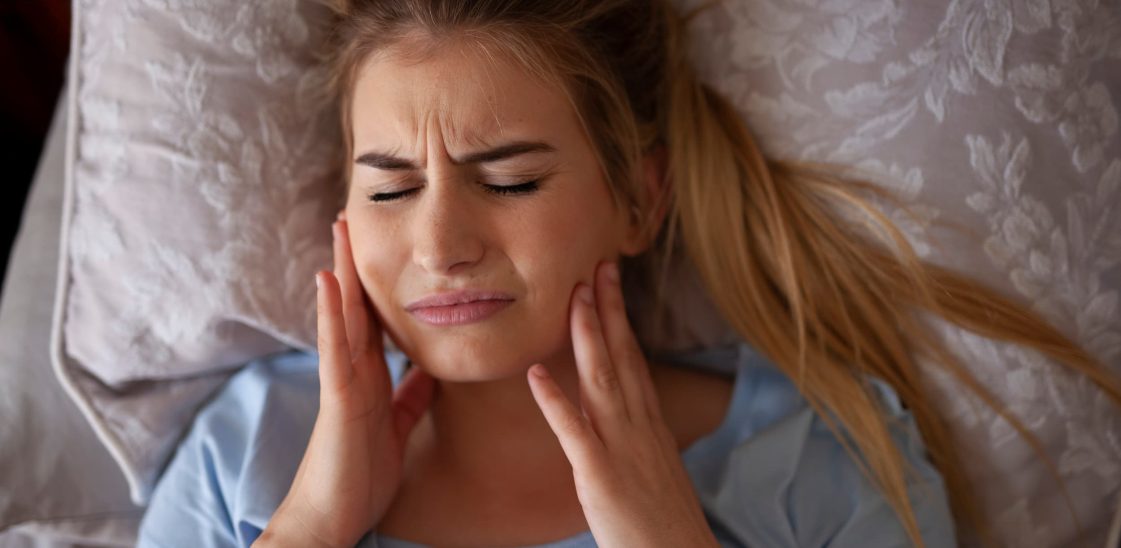
What is bruxism?
Bruxism is a term you may have heard from your dentist or dental hygienist, but what does it mean? Far from being some complex disease or infection, it’s actually just the proper name for teeth grinding. Bruxism usually refers to unintentional teeth grinding, often done habitually or while you’re sleeping, so you might not even be aware you’re doing it.[1]
How do you know if you have bruxism?
The reason dentists are concerned about you regularly grinding your teeth, whether consciously or subconsciously, is that it can cause other problems relating to your oral health and your wider wellbeing which can often be how people realise they have bruxism in the first place.
For example, if you grind your teeth unconsciously, you might notice:[1]
- Soreness in the shoulders, neck and face, including headaches and earaches
- Pain in the jaw – potentially leading to a condition called temporomandibular disorder (TMD)
- Disturbed sleep – particularly if you grind your teeth at night
- Broken or worn down teeth – potentially leading to increased sensitivity, fillings and loss of teeth.
In some cases, you may also experience secondary symptoms. For example, a painful jaw can make it difficult to eat and drink,[2] while disrupted sleep can lead to impaired concentration, irritability and anxiety.[3]
Since teeth grinding is often done subconsciously, many people don’t even realise they’re doing it until it starts to cause symptoms. However, you might find that a partner or significant other notices you grinding your teeth while you sleep, or a loved one notices you doing it when your mind is elsewhere. Being mindful of the issue can also make it easier for you to spot it yourself.[1]
Can bruxism be cured?
Bruxism isn’t a disease or infection, but a habit. In order to cure yourself of the habit, there are plenty of techniques you can try. The ones that work best will depend on what’s causing you to grind your teeth in the first place.[1]
For example, if stress is a factor, then you may find that your teeth grinding stops naturally as your work becomes less busy, perhaps, or after you’ve completed a big project. At the same time, you can try methods to reduce your overall stress levels such as meditating, exercising regularly and listening to music to help you relax.[1]
You can also break the habit in the same way you might break other unwanted habits – by noticing when you’re about to do them and replacing the undesirable activity with something else. This is typically most effective if you grind your teeth a lot during the day, since you’re less likely to be awake to notice it at night.[1]
While you work on breaking the habit of teeth grinding, there are also things you can do to mitigate the effects of it. If you’re experiencing pain, for example, then taking painkillers may help to relieve the soreness. You could also try home remedies like ice or heat packs.[1]
At night, you’re less likely to be able to stop yourself from grinding your teeth, especially if you have a tendency to do so in your sleep. Therefore, you need something to protect your teeth from wear and help to prevent sensitivity from developing.[1] Mouth guards such as Dentek’s Maximum Protection Dental Guards help to shield your teeth from grinding against each other, reducing the impact bruxism can have on your oral health. These dental guards have a slimline, custom fit design that protects your teeth while feeling unobtrusive in your mouth, allowing you to still get a good night’s sleep.
Resources
[1] – https://www.nhs.uk/conditions/teeth-grinding/
[2] – https://www.nhs.uk/conditions/temporomandibular-disorder-tmd/




